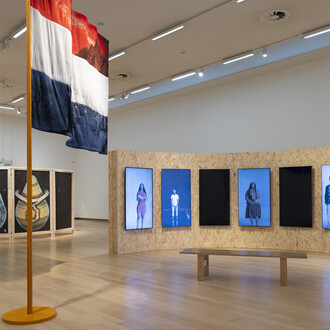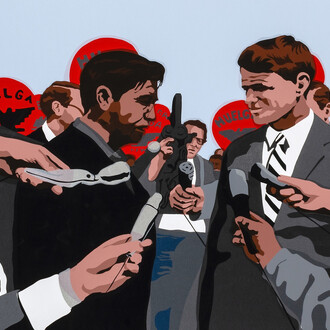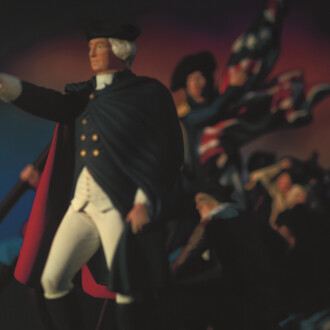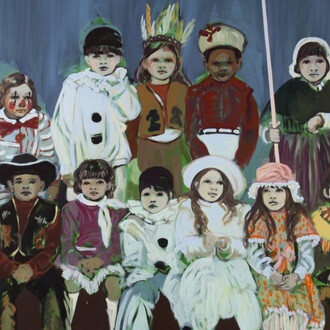With Drama 1882, Egyptian artist Wael Shawky presents a powerful and layered work exploring themes of power, historiography, and representation. Wael Shawky's work often addresses changing societies, focusing on themes of migration, religion, and power—always with a nod to contemporary realities.
Drama 1882
Drama 1882 centers on a pivotal moment in Egyptian history: the Urabi Revolution (1879–1882), a military-led uprising against foreign interference in Egypt. In 1882, the revolution was suppressed by the British, who subsequently maintained control over Egypt until 1956.
Who decides who is a hero, a freedom fighter—or a terrorist? Drama 1882 poses this critical question, revealing how those in power often shape the narratives that are told. Shawky’s work not only reflects on the past but also speaks directly to the present. By blending fact, speculation, and fiction, he reimagines history through a unique artistic lens—offering an alternative perspective.
Between opera and painting
Shawky composed the music and wrote the libretto himself, with the lyrics performed by professional singers in classical Arabic. The work probes the meaning of the word “drama”—suggesting not only theatre and imagination, but also struggle, loss, and doubt. What is fact, and what is fiction? The images unfold slowly, layered one over another, evoking the effect of a painting coming to life. The result is a mesmerizing visual opera.
















